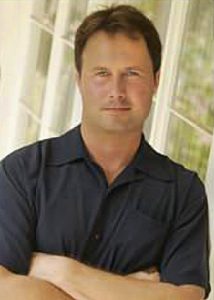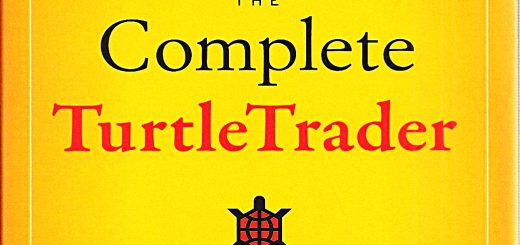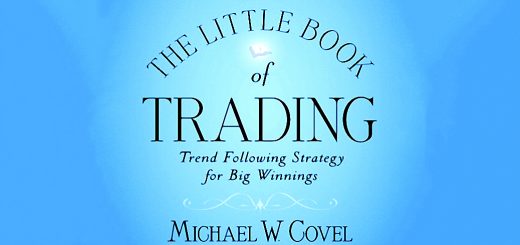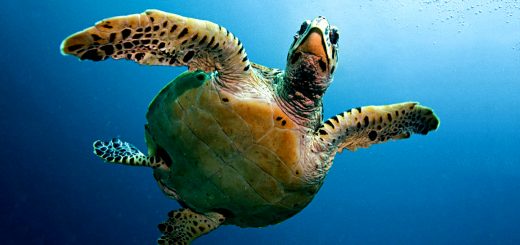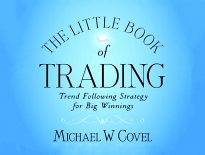The Turtle Traders #3

Today’s post is our third look at the Turtle Traders. This time we move on to Michael Covel’s book on the subject.
The Turtle Traders
Every morning in Africa a gazelle wakes up. It knows it must run faster than the fastest lion or it will be killed.
Every morning a lion wakes up. It knows it must run faster than the slowest gazelle or it will starve to death.
It doesn’t matter whether you are a lion or a gazelle. When the sun comes up, you better start running. – African proverb
The experiment has already been done that shows that we can all learn to trade for a living if we want to. That is why the Turtles matter – Steve Gabriel.
By now, this is a familiar story, so I will focus on details that we haven’t yet come across.
Covel
We met Michael Covel when we looked at his Little Book of Trading.
He also has a book about the Turtles:
Covel came across the Turtle story when he looked down the list of biggest Wall Street earners for 1993, and realised that one of them lived pretty close to him.
- That was Jerry Parker of Chesapeake Capital, who turned out to be one of the Turtles.
In fact, he turned out to be the only person on the Top 100 list who had been “trained” (by Richard Dennis and apparently Marty Zweig – plus in reality William Eckhardt).
- Covel was interested in learning how to earn the same kind of money (Parker made $35 M in 1993), and was inspired.
Nature vs Nurture
The Turtles are an answer to the age-old question of nature versus nurture – Michael Covel
Give me a dozen healthy infants and my own specific world to bring them up in, and I’ll guarantee to take any one at random and train him to become any type of specialist I might select— doctor, lawyer, artist, merchant, chef and yes, even beggar and thief.- John Watson, psychologist.
It should have taken more effort and a much longer time than Dennis allowed for learning it. The experiment violated all of my beliefs around effort and merit and reward. If something was that easy to learn, it shouldn’t pay so well – Charles Faulkner
Dennis spent $15K on ads in the Wall Street Journal, Barron’s, and the International Herald Tribune seeking trainees during late fall 1983 and 1984.
Richard J. Dennis of C&D Commodities is accepting applications for the position of Commodity Futures Trader to expand his established group of traders.
Mr. Dennis and his associates will train a small group of applicants in his proprietary trading concepts. Successful candidates will then trade solely for Mr. Dennis.
Traders will be paid a percentage of their trading profits. (( They were given $1M to trade, and would receive 15% of profits )) Prior experience in trading will be considered, but is not necessary.
Dennis wanted a mishmash of personalities. He selected both far-right-wing conservatives and bleeding-heart liberals. A high school graduate and an MBA were picked from the thousand- plus applicants who threw their hats into the ring.”
Dennis wanted students who showed a willingness to take calculated risks. He was searching for people who enjoyed playing games of chance. He was looking for people who could think in terms of odds.
Dennis was honest about taking the majority of the profits. He viewed the experiment as a way to diversify his portfolio.
Richard Dennis
Trading was more teachable than I ever imagined. Even though I was the only one who thought it was teachable . . . it was teachable beyond my wildest imagination – Dennis
You shouldn’t live in your trading children’ reflected glory, but I think [training the Turtles] is the single best thing I’ve done – Dennis
Trading has taught me not to take the conventional wisdom for granted. What money I made in trading is testimony to the fact that the majority is wrong a lot of the time – Dennis
Richard Dennis was an iconoclast, a wildcatting Chicago trader not affiliated with a major investment bank or Fortune 500 firm. By the time he was thirty-seven, he’d made hundreds of millions of dollars out of an initial grubstake of a few hundred.
He was reticent to focus on his wealth because what he really wanted to prove was that his earning skills were nothing special. He felt anyone could learn how to trade if taught properly. His partner, William Eckhardt, disagreed, and their debate resulted in the Turtle experiment.
In 1986, Dennis made $80M (probably $300M today).
He was down $10 million in a single day that year before bouncing back, a rollercoaster ride that would have made mere mortals lose serious sleep.
His money making style was about mammoth home runs and many smaller strikeouts. If there was a secret, he knew that you had to be able to accept losses both psychologically and physiologically.
His trading technique was to trade seasonal spreads in markets like soybeans – his initial specialty. Dennis would hold long and short positions in futures contracts in the same or related markets.
Dennis knew that traders had a tendency to self-destruct. The battle with self was where he focused his energies.
I think it’s far more important to know what Freud thinks about death wishes than what Milton Friedman thinks about deficit spending – Dennis.
The remainder of this chapter covered Dennis’ career, his personal eccentricities, his political ambitions, and his adventures in managing other people’s money.
- We touched on all of these when we looked at Dennis’ chapter in Schwager’s Market Wizards.
My principal irritation with liberals: they don’t understand how it can possibly be true that you make the poor richer by making everyone richer. I don’t understand that they don’t even consider that possibility – Dennis
The drug war violates the Golden Rule of doing unto others as you would have them do unto you. None of us is free of vice or temptation. Does any one of us really want to be jailed for our moral shortcomings? – Dennis.
I think the problem is that a money manager very rarely ever sits down with the person whose money it is. There’s always a representative of a firm of a firm of a firm.
When you have customer money, you generally try to please the people who want “passable”, whereas you might be able to explain it to the ultimate end user that this might look brutal, but we’re trying for something spectacular – Dennis.
Conclusions
It’s early days, but the indications are that Covel’s book on the Turtle Traders will be as chatty and elliptical as his Little Book of Trading.
- For someone new to the Turtle story, this would be an interesting read, but for those who have read material from Curtis Faith, there’s little that is both new and important.
We’ve covered about a sixth of the book today, implying another five articles.
- But if the succeeding chapters are as light as the three we looked at today, I may speed things up a little.
Until next time.

